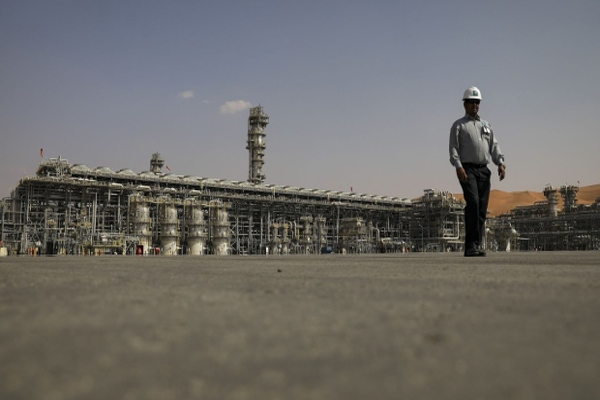
also known as the ‘Empty Quarter,’ in Shaybah, Saudi Arabia, on Tuesday, Oct. 2, 2018. (Bloomberg).
By Grant Smith, Bloomberg News
LONDON
EnergiesNet.com 04 04 2022
OPEC struggled to deliver even a modest scheduled increase in oil supplies last month, when major consumers were urging the cartel to fill in the gap left by Russia.
The Organization of Petroleum Exporting Countries rebuffed calls to open the taps even as Russia’s invasion of Ukraine roiled markets and propelled prices as high as $139 a barrel. The group has insisted it will stick to the regimen of careful supply hikes agreed last year.
But OPEC failed to manage even that, adding just 90,000 barrels a day in March, or roughly a third of the volume planned, according to a Bloomberg survey. The organization’s inability — and refusal — to do more helped trigger the release of emergency oil stockpiles announced by the U.S. and other consumers this week.
While group leader Saudi Arabia and its neighbor, the United Arab Emirates, largely increased production in line with their targets, most other nations pumped far below quota as diminished investment and operational outages eroded their capacity. Angola and Nigeria are particularly badly hit.
Governments urged the Persian Gulf heavyweights to open the taps faster last month to help refiners replace Russian supplies, as legal barriers made dealing with Moscow undesirable for many customers.
But Riyadh and Abu Dhabi demurred, partly from an insistence that markets weren’t yet experiencing a shortage, and partly out of loyalty to Moscow, with which they lead the broader OPEC+ coalition of producers.
OPEC’s 13 members pumped an average of 28.6 million barrels a day in March, according to the survey. The figures are based on ship-tracking data, information from officials and estimates from consultants including Rystad Energy AS and JBC Energy GmbH.
bloomberg.com 04 01 2022












